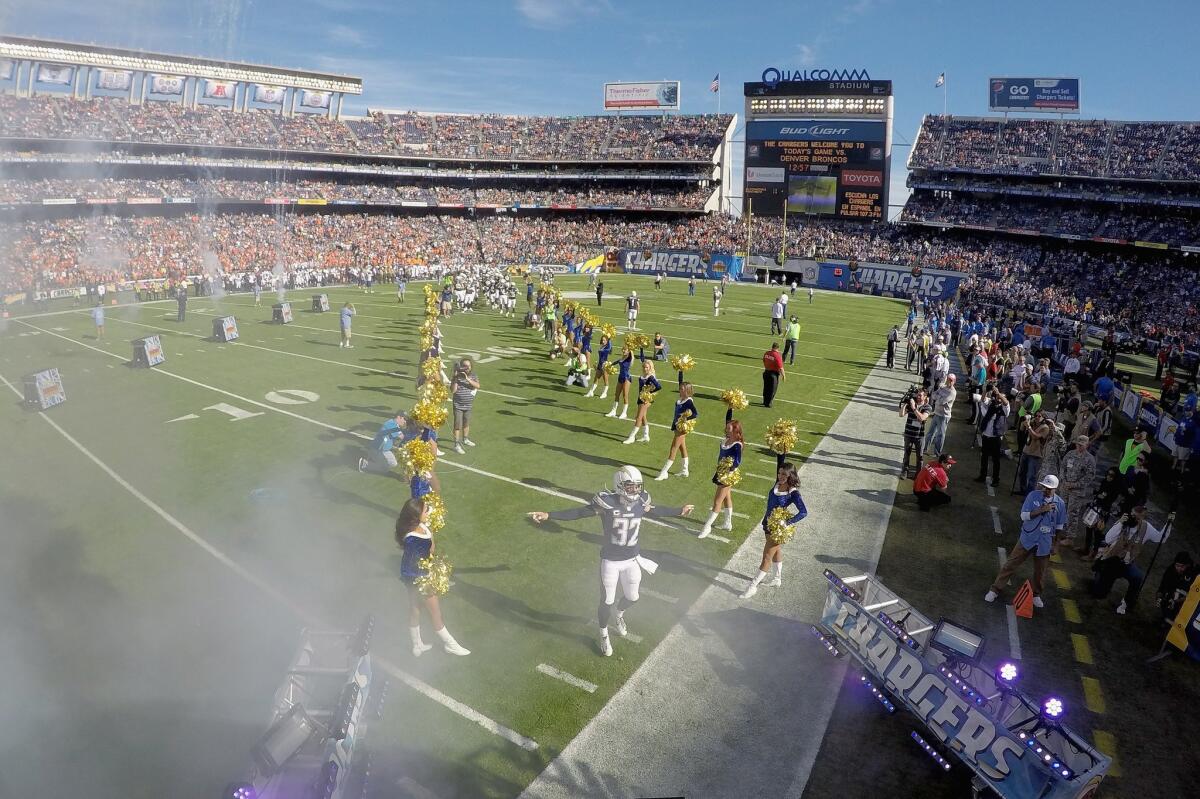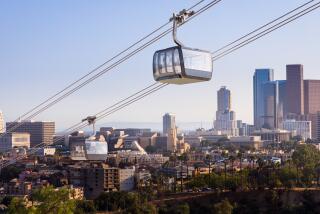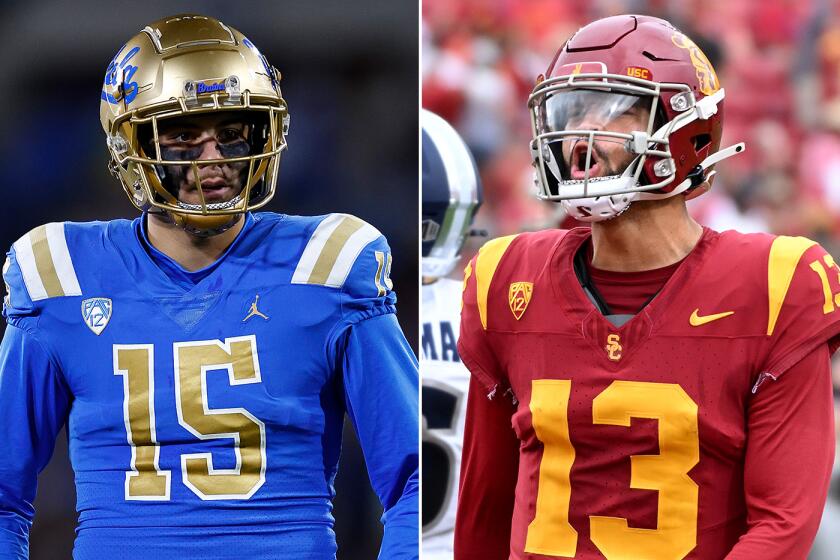Chargers set sights on L.A., push San Diego officials for action on stadium

Frustrated by the prospect of another do-nothing stadium task force, the Chargers on Monday warned San Diego to either step up or step aside in the pursuit of a new NFL venue, and again raised the specter of a relocation to Los Angeles.
“We are keeping a close eye on the developments in L.A.,” Chargers special counsel Mark Fabiani told San Diego Mayor Kevin Faulconer’s newly formed stadium advisory group in a six-page document. “We do not have a choice but to also monitor and evaluate our options there. Simply put, it would be irresponsible for the Chargers not to be taking every possible step to protect the future of the franchise.”
For the Chargers, who since 2002 have been looking for an alternative to outdated Qualcomm Stadium, there’s a renewed sense of urgency. Last month, St. Louis Rams owner Stan Kroenke announced plans to build an 80,000-seat football stadium at Hollywood Park.
According to the Chargers, one-quarter of their season-ticket base comes from L.A., Orange County or the Inland Empire, and therefore an L.A. team playing in a new stadium would take a big bite out of San Diego’s revenues.
“It would not be fair to the Chargers — a team that has worked for 14 years to find a stadium solution in San Diego County — to allow other teams that themselves abandoned the L.A. market to now return and gut that Chargers’ local revenue stream,” wrote Fabiani, who met Monday with the mayor’s nine-member task force.
The Chargers made no secret of their displeasure with the forming of yet another task force, put in place to recommend a site and financing plan for a new venue that could go on the November 2016 ballot.
Fabiani wrote any stadium proposals should pass a series of “real world tests,” such as it needs to have a strong chance of being approved by the required two-thirds of votes, needs to have the support of the mayor and a majority of the city council, and should “recognize the economic realities of our local marketplace and of the NFL.”
Among those realities, Fabiani wrote, the Chargers cannot be expected to generate the robust preferred-seat-license revenues the San Francisco 49ers and Dallas Cowboys did when building their stadiums.
Adam Day, chairman of the advisory group, said the meeting with Fabiani was productive.
“It wasn’t hostile at all,” he said. “It was very cordial.”
Day, assistant tribal manager for the Sycuan tribe and a trustee of the California State University system, said the task force agrees with some of the points made by Fabiani, but is not convinced a venue would be as expensive as the Chargers estimate it will be.
Fabiani warned against suggesting the Chargers should settle for a stadium built on the cheap, writing, “We have heard commentators say that the stadium could be built for $700 million, or even less. ... These off-the-cuff estimates ignore the real world costs of stadiums now being built around the country — from San Francisco to Minnesota to Atlanta. Looking around the country, new stadium costs are coming in at $1.2 to $1.5 billion.”
“We think that we can find a solution that works for everybody that’s fair,” Day said. “Our objective is to come forward with something that settles this once and for all. Obviously, it’s something the voters need to support. If there’s not a solution out there that the voters can support, you’re not going to find us recommending it.”
As for the message about the L.A. market, that apparently came through loud and clear.
Said Day: “As the mayor said, the situation in Los Angeles has never been more real.”
Times staff writer Tony Perry contributed to this report.
More to Read
Get our high school sports newsletter
Prep Rally is devoted to the SoCal high school sports experience, bringing you scores, stories and a behind-the-scenes look at what makes prep sports so popular.
You may occasionally receive promotional content from the Los Angeles Times.






